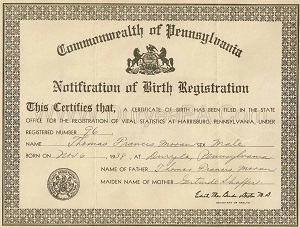This is Faith in Play #76: Lineage, for March 2024.
Lineage–the chain of ancestry from father to son over generations–is a very significant theme in the Bible, more so than even many serious students of the Bible realize. We recognize that the Old Testament is laced with family records covering centuries, and that in the New Testament both Matthew and Luke give us a genealogical record of Jesus. Yet it goes deeper than that.

It is a generally overlooked point that Noah, the builder of the ark, was the first born son of the first born son all the way back to Seth, the surviving righteous son of Adam and Eve after Cain killed Abel. That made Noah patrilineal head of the human family at that time. Then, again something that is clearly presented in Genesis but not usually noticed, Abraham is the first born son of the first born son descending from Noah, again the patrilineal head of humanity. God didn’t pull his name out of a hat, and it wasn’t even primarily because of his devotion, at least at first. Abraham was the representative of humanity.
That status continued with Isaac, who was the first son of Abraham’s first wife. It became more complicated after that, because Reuben was the eldest son, followed by Simeon and Levi, with Judah the fourth; but because of various wrongs the older brothers were disqualified, and headship of the family went to Judah. God’s choices were not arbitrary, and they were not based on any kind of merit. They were based on lineage.
In some cultures, lineage was important. There are still vestiges of this in Britain’s noble families, as properties are passed from parent to child through centuries, often along with accompanying titles. Yet the recorded genealogies of Jesus tell us that to Jewish commoners these family histories were just as important, preserved so that any Jewish man could tell you exactly how, generation by generation, he was descended from Abraham.
There are vestiges of that in Jewish culture still today. Christians are a bit loose with the use of the Aaronic benediction, but in synagogues this can only be pronounced as written by a priest–not a rabbi, a certified descendant of Aaron bearing the name Cohen in most cases. These are not the descendants of kings or royalty, but of Levites and specifically the sons of Moses’ brother. Their lineage matters; it makes them important among their people.
For us, we are sons and daughters of God through Jesus Christ, and our new birth gives us a new lineage. Human lineages no longer matter among God’s newly chosen people. The discrimination which favored firstborns applied to God’s own First Born, and then ended as He brought the rest of us into His family by adoption.
Yet in many cultures and many worlds, lineage matters. Your place in the world, your place in the faith, might well depend on the identity of your great-great-great-great grandfather. It’s something to bear in mind when designing the cultures and religions of your worlds.
Previous article: Tourette’s.
Next article: Animals.
